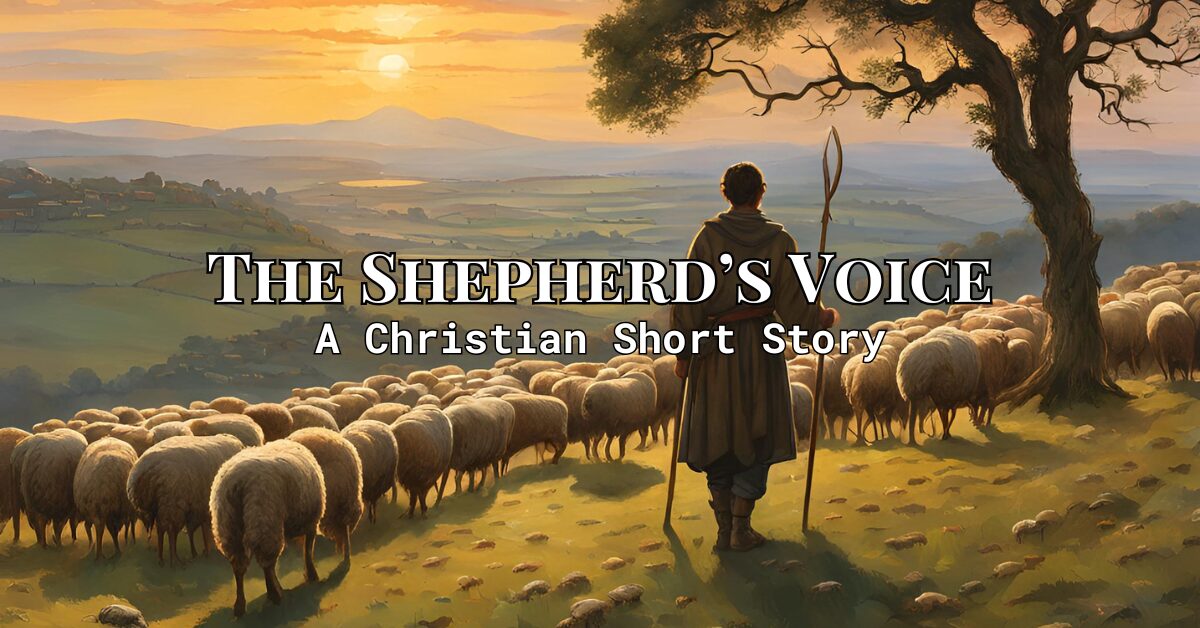In the rich tapestry of Jesus’ teachings, the Parable of the Talents emerges as a compelling narrative that intricately weaves together themes of stewardship, responsibility, and the anticipation of the Kingdom of Heaven. Found in Matthew 25:14-30, this parable vividly illustrates the story of a man who entrusts his property to his servants before embarking on a journey. Each servant is given a different amount of talents (a significant sum of money in ancient times), according to their ability. Upon his return, the master assesses what each has done with their allotment, rewarding the diligent and rebuking the negligent.
The Talents parable challenges us to reflect on our own use of the gifts and resources entrusted to us by God. It prompts a deeper examination of how we are contributing to God’s work in the world and preparing for the eventual reckoning of our faithfulness. This teaching of Jesus is not just a call to action but a profound exploration of the values of the Kingdom of Heaven, where diligence, faithfulness, and wise stewardship are esteemed.
As we delve into the Parable of the Talents, we are invited to explore its implications not just for our spiritual lives but in every aspect of our daily existence. This blog post aims to unpack the layers of meaning within the parable, offering insights into its practical application in our lives today. Join us as we discover how to live out the call to be faithful stewards of the talents we’ve been given, ensuring that when the time comes, we can joyfully enter into the joy of our Lord. Let this exploration inspire us to use our gifts wisely, contributing to the flourishing of God’s kingdom and the well-being of the world around us.
Also Read: Parable of Jesus: The Doorkeeper
Parable of Jesus Christ: The Talents
The Talents Parable, Matthew chapter 25, verses 14-30 (WEB):
“14 ‘For it is like a man, going into another country, who called his own servants, and entrusted his goods to them. 15 To one he gave five talents, to another two, to another one; to each according to his own ability. Then he went on his journey. 16 Immediately he who received the five talents went and traded with them, and made another five talents. 17 In the same way, he also who got the two gained another two. 18 But he who received the one went away and dug in the earth, and hid his lord’s money.
19 ‘Now after a long time the lord of those servants came, and reconciled accounts with them. 20 He who received the five talents came and brought another five talents, saying, ‘Lord, you delivered to me five talents. Behold, I have gained another five talents besides them.’ 21 His lord said to him, ‘Well done, good and faithful servant. You have been faithful over a few things, I will set you over many things. Enter into the joy of your lord.’ 22 He also who had received the two talents came and said, ‘Lord, you delivered to me two talents. Behold, I have gained another two talents besides them.’ 23 His lord said to him, ‘Well done, good and faithful servant. You have been faithful over a few things, I will set you over many things. Enter into the joy of your lord.’
24 ‘He also who had received the one talent came and said, ‘Lord, I knew you that you are a hard man, reaping where you didn’t sow, and gathering where you didn’t scatter. 25 I was afraid, and went away and hid your talent in the earth. Behold, you have what is yours.’ 26 But his lord answered him, ‘You wicked and slothful servant. You knew that I reap where I didn’t sow, and gather where I didn’t scatter. 27 You ought therefore to have deposited my money with the bankers, and at my coming I should have received back my own with interest. 28 Take away therefore the talent from him, and give it to him who has the ten talents. 29 For to everyone who has will be given, and he will have abundance, but from him who doesn’t have, even that which he has will be taken away. 30 Throw out the unprofitable servant into the outer darkness, where there will be weeping and gnashing of teeth.’”
This parable is a teaching of Jesus about stewardship, responsibility, and the kingdom of heaven, emphasizing the importance of using one’s gifts and resources wisely and diligently.
Also Read: The 45 Parables of Jesus
Are The Talents Parable and The Minas Parable the Same?
In exploring the teachings of Jesus, we encounter parables that, at first glance, may seem similar in their themes and messages. Among these are The Talents Parable, found in Matthew 25:14-30, and The Parable of the Minas (sometimes referred to as “The Parable of the Pounds”), located in Luke 19:12-27. While both parables share the central theme of stewardship and accountability, there are distinct differences that highlight unique lessons and contexts. Let’s delve into a comparison of these two parables to understand their similarities and differences.
Contextual and Thematic Differences
Setting and Audience: The Talents Parable is part of Jesus’ eschatological discourse, addressed to His disciples on the Mount of Olives, focusing on readiness for the Kingdom of Heaven. In contrast, The Parable of the Minas is told to a crowd following Jesus as He approaches Jerusalem, prompted by their expectation that the Kingdom of God would appear immediately.
Economic Context: A “talent” was a significant amount of money, possibly years’ worth of wages for a laborer, while a “mina” was a smaller unit of currency, though still substantial. This difference in the economic value of the talents and minas may reflect the varying levels of responsibility and stewardship expected from the servants.
Lessons on Stewardship and Responsibility
Distribution of Resources: In The Talents Parable, servants are given different amounts of money (five talents, two talents, and one talent) based on their abilities. The Parable of the Minas, however, sees each servant receiving the same amount—one mina—to see what they would do with it. This variance underscores a slightly different aspect of stewardship: The Talents Parable emphasizes maximizing one’s given potential, while The Minas Parable focuses on equality of opportunity and the universal call to faithful service.
Responses and Outcomes: Both parables conclude with the servants being judged for their stewardship, but the emphasis varies. The Talents Parable highlights the growth achieved and the principle of being entrusted with more based on one’s faithfulness. The Minas Parable also addresses this but includes a more explicit treatment of the consequences of inaction, with the unproductive servant facing sterner rebuke, and introduces the aspect of rulership over cities as a reward, linking faithfulness with leadership and authority.
While The Talents Parable and The Parable of the Minas share foundational themes of stewardship, accountability, and the importance of using one’s resources wisely, they are not the same. Each parable, within its unique narrative and context, offers distinct insights into how Jesus views the kingdom’s principles of responsibility, service, and reward. Together, they enrich our understanding of what it means to be faithful stewards of what God has entrusted to us, challenging us to live lives marked by diligence, growth, and preparedness for the coming of the Lord.
Related: Parable of Jesus: The Minas
Interpretation of The Talents Parable

The Parable of the Talents, as recounted in Matthew 25:14-30, is a multifaceted teaching by Jesus that offers profound insights into the nature of God’s kingdom, the expectations placed upon His followers, and the principles of stewardship and accountability. This parable, rich with symbolism and depth, invites a closer examination of its underlying messages and their relevance to our spiritual journey.
The Nature of God’s Kingdom
Entrustment and Expectation: At the core of The Talents Parable is the notion of entrustment; the master entrusts his property (talents) to his servants according to their abilities. This reflects God’s kingdom, where God entrusts His followers with gifts, resources, and opportunities, expecting them to use these in service to His purposes.
Diversity of Gifts: The differing amounts of talents given to each servant highlight the diversity of gifts and capacities within the community of believers. The Talents Parable teaches that, though our gifts may vary, each is valuable and intended for use in God’s kingdom work.
Principles of Stewardship
Faithful Stewardship: The servants who invest their talents and produce more exemplify faithful stewardship. They recognize the value of what has been entrusted to them and take action to increase its worth. This mirrors the call for believers to actively engage and grow the gifts God has given them, whether these are skills, resources, or time.
Accountability and Reward: The master’s return and settlement with the servants underscore the theme of accountability. The Talents Parable assures us that faithful stewardship is recognized and rewarded by God. Conversely, negligence and inaction, as demonstrated by the servant who buried his talent, result in loss and judgment.
Implications for Discipleship
Active Engagement: The parable challenges believers to an active engagement with the gifts they’ve been given. It’s a call to move beyond fear and complacency, stepping out in faith to invest in God’s kingdom. The Talents Parable encourages us not just to maintain but to multiply what we have been given, in service to the Lord.
Preparation for the Lord’s Return: The timing of the master’s return, unspecified and unexpected, serves as a metaphor for Christ’s second coming. The Talents Parable thus becomes a lesson in eschatological readiness, urging believers to live in a state of preparedness through faithful service and stewardship.
Personal Responsibility and Initiative: The parable highlights personal responsibility and the need for initiative. Each servant decides how to manage their talents, reflecting the personal nature of faith and the individual call to serve according to one’s unique capacities and circumstances.
The Talents Parable is a compelling narrative that transcends time, continually challenging believers to examine their stewardship of God-given gifts. It calls us to recognize the value of what we have been entrusted with, to work diligently for the growth of God’s kingdom, and to prepare earnestly for Christ’s return. Through this parable, Jesus invites us into a deeper understanding of our role as His followers, encouraging us to live lives marked by faithful, active, and purposeful stewardship.
Also read: Parable of Jesus: The Ten Virgins
Practical Application of The Talents Parable in Our Daily Lives

How can you apply The Talents Parable in practically in your daily life? Let’s find out.
The Talents Parable is not just a biblical narrative but a blueprint for living a life that reflects the values of God’s kingdom. Its lessons extend far beyond the ancient context, offering guidance on how we can use our God-given gifts wisely and purposefully. Here’s how we can apply the profound insights of The Talents Parable to our everyday lives.
Recognize and Value Your Talents
Inventory Your Gifts: The first step in applying The Talents Parable is recognizing the talents or gifts you’ve been given. This requires a period of self-reflection and perhaps conversations with others who can help identify your strengths, skills, and spiritual gifts. Acknowledging these talents is acknowledging God’s investment in you.
Embrace Diversity of Gifts: Just as the servants were given different amounts of talents, we too have varied gifts. The Talents Parable encourages us to celebrate the diversity of talents within our communities, recognizing that each person’s contribution is vital to the body of Christ.
Invest Your Talents Wisely
Active Engagement: The Talents Parable teaches the importance of actively engaging with our talents. Whether it’s through further education, practice, or putting skills to use in service, we are called to invest in and develop our gifts. This could mean volunteering in areas that align with your talents, pursuing career paths that utilize your strengths, or simply using your abilities to bless those around you.
Overcome Fear: The servant who buried his talent did so out of fear. The Talents Parable reminds us to overcome fear and the temptation to hide or neglect our gifts. Taking risks and stepping out in faith are essential parts of growth and stewardship.
Cultivate a Culture of Watchfulness
Encouraging Mutual Watchfulness: The Doorkeeper Parable is not just about individual readiness but also about fostering a community that encourages vigilance. By supporting one another in faith, sharing insights from Scripture, and praying together, we can cultivate a culture of watchfulness that strengthens the entire body of Christ.
Being Alert to God’s Movements: Vigilance also involves being attentive to how God is moving in the world and in our lives. This means being open to the Holy Spirit’s guidance, recognizing opportunities to advance God’s kingdom, and being prepared to act on God’s promptings.
Serve Others and God’s Kingdom
Stewardship as Service: The Talents Parable illustrates that true stewardship is not just personal growth but service to others and God’s kingdom. Look for opportunities to use your talents in ways that contribute to the well-being of others, support the mission of the Church, and advance the gospel.
Seek God’s Guidance: Regularly seek God’s guidance on how to use your talents. Prayer, meditation on Scripture, and wise counsel can help discern how best to apply your gifts in alignment with God’s purposes.
Prepare for Accountability
Live with the End in Mind: The Talents Parable underscores the reality of eventual accountability. Live each day with the understanding that how you use your talents matters to God and will be subject to His review. This perspective encourages a life lived intentionally and purposefully.
Cultivate Faithfulness: Ultimately, the parable commends the servants for their faithfulness, not just their success. Cultivating a heart of faithfulness involves perseverance, integrity, and a deep commitment to doing God’s work, even in small tasks.
The Talents Parable serves as a powerful reminder of the responsibility we have to steward our gifts in service to God and others. By recognizing our talents, investing them wisely, serving God’s kingdom, and preparing for accountability, we live out the principles of this parable in our daily lives. Let The Talents Parable inspire you to fully embrace and utilize the gifts God has entrusted to you, ensuring that when the time comes, you too can hear the words, “Well done, good and faithful servant.”
Conclusion

In reflecting on The Talents Parable, we find a compelling narrative filled with wisdom and guidance for our spiritual and everyday lives. This parable is a vivid reminder that God entrusts each of us with unique gifts and talents, not to be hidden away but to be developed and used for the growth of His kingdom and the betterment of the world around us. The call to action is clear: we are to be active stewards of these gifts, investing them wisely and diligently in service to others and to God.
The Talents Parable challenges us to assess our lives, to recognize the resources, abilities, and opportunities God has placed in our hands. It urges us not to be paralyzed by fear or complacency but to step out in faith, maximizing the potential God has embedded within each of us. Through this parable, Jesus communicates the importance of readiness, faithfulness, and the transformative power of putting our faith into action.
As we conclude our exploration of The Talents Parable, let it serve as a catalyst for personal and communal growth. Let us be inspired to cultivate our talents, to embrace the responsibility of stewardship, and to contribute to the flourishing of God’s kingdom with enthusiasm and dedication. May we all aspire to hear the commendation, “Well done, good and faithful servant,” as we endeavor to live lives marked by purpose, generosity, and a deep commitment to following Christ’s example.
The Talents Parable, therefore, is not just a story from the past; it is a living, breathing call to action for believers today. It beckons us to awaken to the potential God has sown within us, encouraging us to invest our lives in ways that echo into eternity.
Read the Next: Parable of Jesus: The Sheep and the Goats








